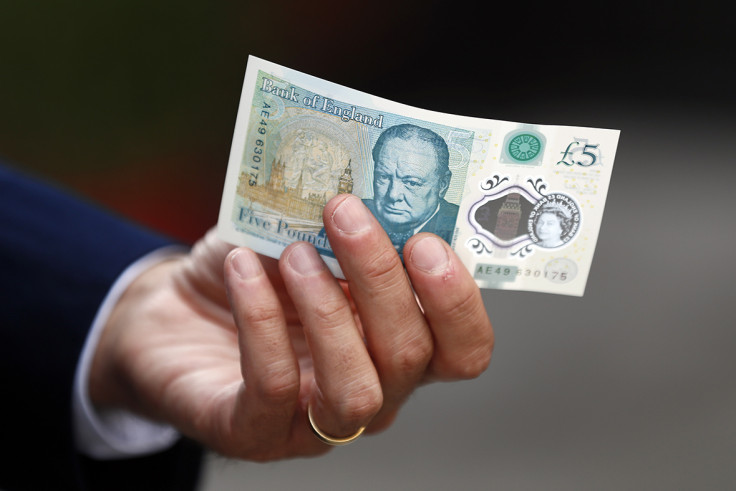Outraged about animal fats in new five pound notes? That's not the only meaty everyday item
Millions of vegetarians and vegans are forced to use something in direct opposition to their principles.

This week we woke up to the news that the new British fiver contains tallow (aka the fat from a dead animal). So it's quite literally blood money. When you consider that tallow is a by-product of a cruel and violent industry that kills billions of cows every year and is one of the largest producers of greenhouse-gas emissions in the world, the decision to use it in our supposedly "cleaner", "safer", "stronger" currency truly doesn't make cents.
Today, we all know we should be moving away from animal agriculture. A 2014 United Nations report said that a global shift towards a vegan diet is necessary to combat the worst effects of climate change, stating that the livestock sector is one of the most significant contributors to the most serious environmental problems. Professor Edgar Hertwich, lead author of the report, said: "Animal products cause more damage than [producing] construction minerals such as sand or cement, plastics or metals. Biomass and crops for animals are as damaging as [burning] fossil fuels." And while it wreaks havoc on the planet, the meat industry is also inflicting needless suffering on billions of sensitive and intelligent animals and doling out frightening and often painful deaths on an almost unimaginable scale.
The fact that there are animal-derived ingredients in the new note means that millions of vegetarians and vegans are being forced to use something which is in direct opposition to our principles. But it's not just vegetarians and vegans who should be outraged – I invite everyone to watch PETA's exposés into factory farms and slaughterhouses and then say they're not outraged. Having watched countless hours of undercover footage, I can tell you that not a single one of them goes down the slaughterhouse ramp willingly.
And it's not just tallow that we should be concerned about. Animal-derived ingredients – such as fish guts, gelatin (made from the skin, tendons, ligaments and bones of animals) – can lurk in some unsuspecting places, including sauces, marshmallows, and even some sweets. If you scan the bottles in the cosmetics aisle at your local chemist, you'll see that some everyday products contain ingredients such as urea (typically from cows) and keratin (often derived from sheep wool).
But there's no question that there's an alternative to tallow in our fivers – and to the animal derivatives in lipsticks and laundry detergent, or candles and cleaning products for that matter. But the meat industry inspires laziness with cheap and plentiful animal-derived solutions. Until we leave meat off our plates, it will continue to treat animals as commodities, putting a pound sign on every part of their bodies, to be chopped up and sold to the highest bidder.
Fortunately, it's not all doom and gloom. The penny is dropping for many people – there are a reported 542,000 vegans in Britain – a number which has tripled over the past 10 years . And research from Mintel has found that a whopping 20 per cent of 16- to 24-year-olds in the UK have ditched animal-derived foods. This latest "meat scandal" only strengthens the cause, because people are talking and thinking about animals – and about meat and how cruel and unnecessary it really is.
It's good that the Bank of England is looking to resolve the issue – as it should. The bottom line is that animal agriculture is cruel and unnecessary, and it is not an industry that anyone should be propping up. In the meantime, it's worth remembering that the best way to help animals is not to avoid this fatty fiver – but rather to vote with our wallets and not give our cash to industries which harm animals and the environment.
Mimi Bekhechi is the director of the People for the Ethical Treatment of Animals (PETA) Foundation.
© Copyright IBTimes 2025. All rights reserved.




















